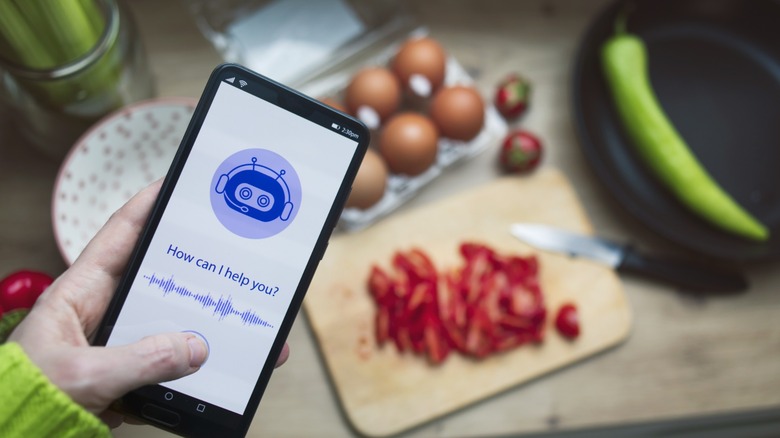
The Rise of AI in Recipe Creation
The world of food blogging and online recipes is increasingly being influenced by artificial intelligence. While many platforms claim to provide authentic, human-generated content, the reality is that a significant portion of the material available online may be generated by AI tools. This shift raises important questions about the authenticity and reliability of the recipes we rely on for our meals.
According to some reports, a large percentage of home cooks are using AI-generated recipes on a regular basis. However, it's essential to approach these claims with caution, as the sources behind such statistics can often be questionable. Even if the data is accurate, the growing presence of AI in recipe creation highlights a broader issue: how to distinguish between content crafted by real people and that produced by algorithms.
Signs of AI-Generated Recipes
One of the most obvious indicators that a recipe might be AI-generated is the quality of the images associated with it. AI-generated photos often have unrealistic elements, such as overly glossy or exaggerated details. These images may not reflect the actual outcome of the dish, making them a red flag for discerning cooks.
In addition to visual cues, the language and structure of the recipe itself can reveal whether it was created by an AI. Instructions that are vague, repetitive, or worded in an unusual way may suggest that the content was generated by a machine. Recipes that skip over important steps or use overly formal language can also be a sign that they were not written by a human chef.
Another common issue with AI-generated recipes is the potential for "hallucinations"—instances where the algorithm creates instructions that don't make sense or are outright dangerous. For example, some AI recipes have included bizarre ingredients like horseradish in brownies, which could lead to unexpected and unpleasant results. In extreme cases, these errors could even pose health risks.
Identifying Real Food Creators
When searching for reliable recipes, it’s important to follow food bloggers and chefs who can be verified as real people. While videos can be faked, those that show a person cooking step-by-step are more likely to be genuine. Platforms like YouTube and TikTok offer opportunities to watch creators in action, providing a level of transparency that is harder to achieve with text-only content.
For print-only recipes, checking the website's history can help determine its credibility. Consider factors such as how frequently new recipes are posted and whether the site appears legitimate. A website that publishes a new dish every day or multiple times a day may be using AI to generate content rather than relying on human effort.
The Future of AI in Cooking
The AI recipe market has grown significantly in recent years, with reports indicating that it was valued at $610 million in 2024. Companies like CloudChef are training AI systems to create dishes that mimic the quality of Michelin-starred meals. However, despite these advancements, there remains a need for human testing and refinement.
AI works by analyzing existing recipes and generating new ones based on patterns it identifies. While this process can produce creative results, it lacks the nuanced understanding of flavor, proportion, and cooking time that human chefs bring to the table. Additionally, if an AI is trained on flawed recipes, it may replicate those errors without recognizing them as mistakes.
Some platforms are already using AI to reverse-engineer recipes from food images. This technology can identify ingredients and instructions based solely on a photo, but it is not without its limitations. Important steps or ingredients may be missed, leading to incomplete or inaccurate recipes.
Making Informed Choices
Despite the challenges posed by AI-generated recipes, there are still ways to find trustworthy content. Online forums and communities often share positive experiences with AI recipes, but it's crucial to use your own judgment when trying them out. Engaging with trusted websites run by real people can also help ensure that the recipes you follow are reliable and well-tested.
As AI technology continues to evolve, distinguishing between human-created and AI-generated recipes will become increasingly difficult. However, with careful research and a critical eye, it's still possible to find high-quality, authentic content that enhances your cooking experience.
0 comments:
Ikutan Komentar